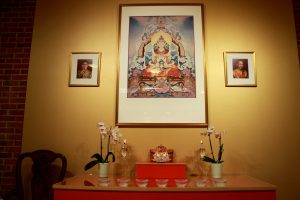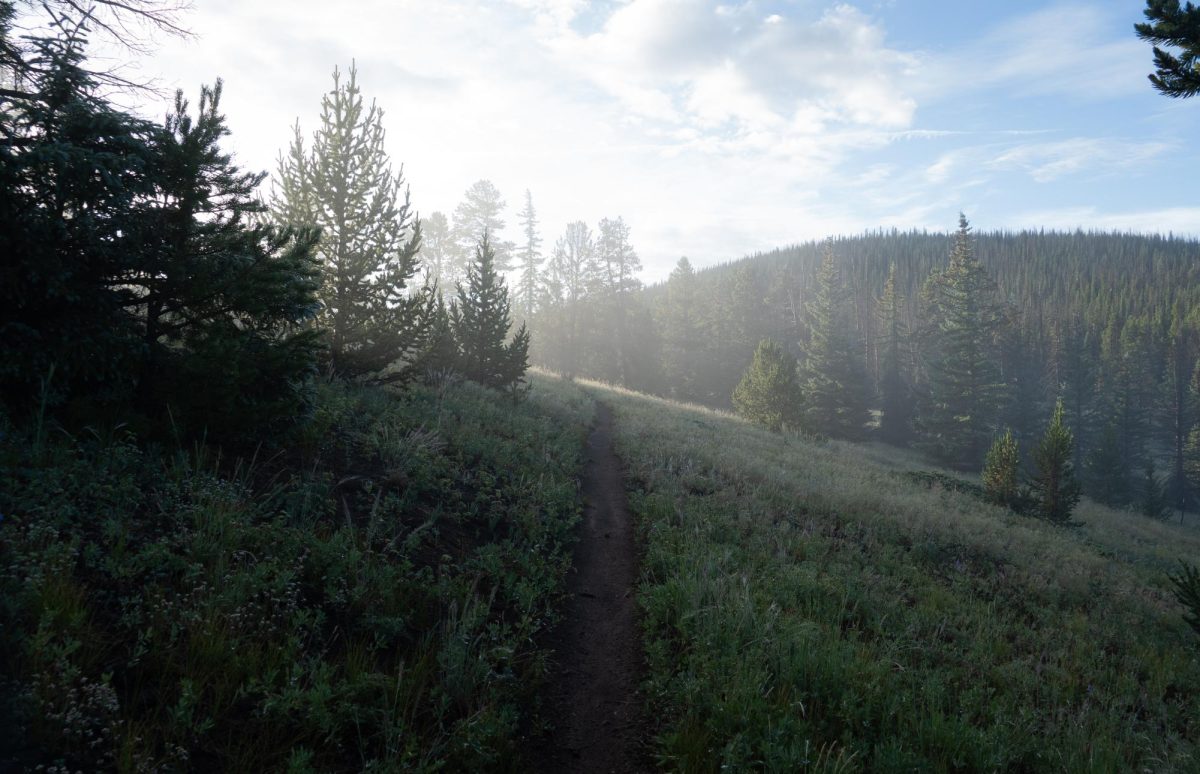The Dalai Lama states, “The essence of spiritual practice is your attitude toward others. When you have a pure, sincere motivation, then you have the right attitude toward others based on kindness, compassion, love and respect. Practice brings the clear realization of the oneness of all human beings and the importance of others benefiting by your actions.”
As a new school year begins, new practices are often put into play. Maybe you’re making the switch from coffee to tea or trying to become more organized. For some, it may be starting a meditative practice.
On Tuesday afternoons, Colorado State University’s students are working to make meditation a part of their routine. Musical Meditations at CSU joins monks from the Radha Krishna Temple on the plaza meditating, playing music and spreading joy most Tuesdays.
“Meditation is a practice by which we can synchronize our mind and body so that we are actually in the same place that we physically are,” said Gailmarie Kimmel, Director of the Fort Collins Shambhala Meditation Center.
Kimmel sat down with us to discuss what meditation means to her and to her center. “We can pay attention to our breathing, we can let our busy minds settle, we note that when we do that, we open our hearts more and are more present not only for our own lives but for the world around us.”

Kimmel made a point of stating meditation is a secular tool, and in no way needs to be a religious following. Although meditation is used in many Eastern religions, it can simply be used as a device to help with everyday life and to change perspective.
Shambhala Meditation Center is open to the public and offers free instruction on how to meditate. They also offer public sittings for anyone who wants to meditate with a community; they receive over 1,000 visitors a year.
Public sittings are helpful for beginners, because it is important to have someone with experience guide them through the first few meditations.
“I think it is really helpful to get some basic meditation instruction from someone who is an actual practitioner. I think we can read a lot of books and conceptually try to grapple with it, but I think it is helpful to get some initial instruction from a real life human being,” said Kimmel.
Mike Cohen, the founder of Kirtan Leader Institute in Boulder, Colorado agrees with Kimmel regarding having someone with experience there to guide. “Who you have the experience with makes all the difference, so have an experience with someone who’s been doing this awhile,” said Cohen.
Cohen talked with us about his background with Kirtan, the music played on campus and Sanskrit. “My experience with it is the words don’t actually point out to the world, they point into your experience, they point to our heart, and from the heart to the divine, and from the divine to the soul. They create an energy channel to this particular aspect of divinity or presence. There’s something very different going on with these words.”

Kirtan is a form of meditation through music. The most common instruments for this genre are the harmonium, the ektara (a form of string instrument), the tabla (one-sided drum), the mrdanga or pakhawaj (two-sided drums), flute (forms of woodwind instruments) and karatalas or talas (cymbals). Kirtan lyrics are in Sanskrit, a language used primarily in Hinduism and throughout ancient India and Nepal.
Cohen’s institute teaches people how to lead Kirtan, and trains them in the meditative properties that surround the music.
“Kirtan generates happiness. How it does this is a bit of a mystery… but it is very reliable. You just chant and instantly you are happy.”
Still a nervous about integrating Kirtan or meditation into your already successful routine? Cohen’s response to critics is simple: “Eat the cake! Have you experienced Kirtan? If you haven’t eaten the cake, you don’t really have the grounding to make an assessment to how the cake is. If there’s a cake sitting there and I say, ‘nope, it’s not moist enough,’ how do I know that? Did I taste it, did I experience it, was that just from looking at it?”
So, eat the cake. Try a new practice this semester and spread the love.
Musical Meditation at CSU meets on Tuesdays at 4:30 p.m. in the Danforth Chapel. There is a free vegetarian feast afterward.
Drop in at Shambhala Meditation Center for their public sitting hours: Sundays at 10 a.m. – Noon, Mondays at 5 p.m. – 6 p.m., Tuesdays at Noon – 1 p.m. and Wednesdays at 7 p.m. – 8 p.m.

































Scott SkepticMeditations • Aug 30, 2017 at 12:48 pm
Before one “eats the cake”, perhaps one should look into whether the “cake” is indeed cake, what its ingredients are and what it is that some people say are risks and downsides to eating the cake. Meditation and chanting practices have risks: group think, magical-thinking, and psychosis are some.
As a former monk in a Hindu-inspired meditation group, Self-Realization Fellowship Order, for decades I’ve eaten the “cake”: practiced meditation and both led and participated in kirtan (group chanting with musical instruments). While meditation and kirtan can be pleasant, there are downsides and adverse side-effects that some people should be aware of before they dive in and eat what some people promise or imply as being all “cake”.